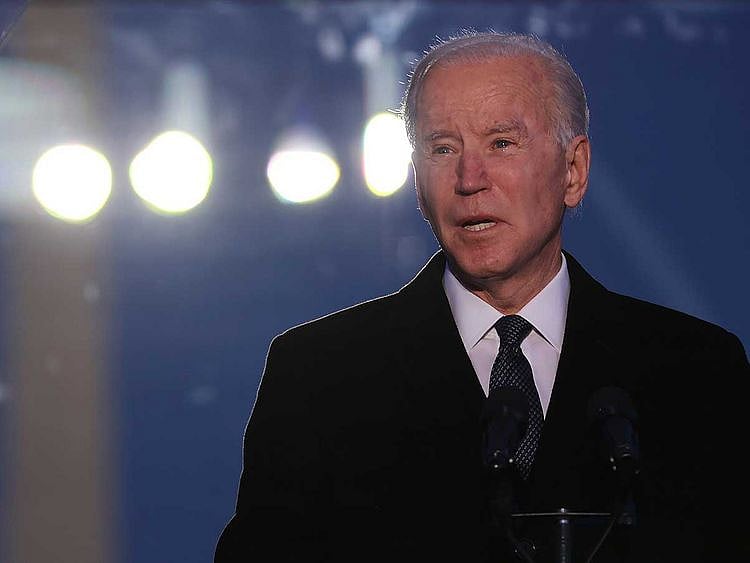US President Joe Biden made his debut on the international stage last Friday when he addressed a virtual meeting of the Munich Security Conference and outlined his administration’s foreign policy foundations. Putting an end to Donald Trump’s isolationist era he declared that “America is back” in reference to it reclaiming its role as a global world leader that is ready to engage with its partners and foes.
He set out a humanitarian message that focused on embracing and supporting democratic values, human rights and the rule of law while underlining his embrace of multilateralism. Moving away from Trump’s “America First” mantra Biden outlined how his administration was quick to rejoin the Paris Agreement on climate change and the World Health Organisation (WHO) while pledging billions of dollars to support a fund that aims at delivering COVID-19 vaccines to poor countries.
Regardless of how one feels about US politics and role in the world, America’s leadership is sorely needed at a time of a global pandemic, economic meltdown, environmental catastrophes and endemic regional conflicts. Biden promised positive engagement and working with America’s partners to strengthen alliances and putting diplomacy first as a way to resolve conflicts.
But he also pointed the finger at China, as an economic foe, and Russia as a political adversary. Both countries present challenges to the US and its European partners. Moscow, he said, wants to weaken the European project and undermine the transatlantic alliance.
His reference to the Middle East focused almost entirely on Iran and its nuclear activities. He announced that the US was prepared to re-engage in negotiations with the P5+1 on Iran’s nuclear program while also addressing Iran’s destabilising activities across the Middle East.
In the view of many US analysts Biden’s foreign policy priority in the region will target renegotiating the nuclear agreement with Iran in a bid to roll back unilateral measures taken by Tehran to resume its uranium enrichment outside any international oversight. The US has welcomed a European initiative to hold fresh talks with Iran. But a hawkish Iranian parliament backed by the country’s Supreme Leader Ayatollah Ali Khameini is refusing to back down and insists on the unconditional return of the US to the 2015 nuclear deal while lifting all economic sanctions.
Iran is also refusing any suggestions to renegotiate the deal that includes putting constraints on its long range missile program. The US, as well as its European and regional partners, want to discuss Iran’s regional agenda and its meddling in the affairs of Iraq, Syria, Lebanon and Yemen.
As things stand now it looks almost impossible that the US will cave in to Tehran’s conditions. It also seems that Iran’s hardliners will prevent the Hassan Rouhani government from making any concessions. Iran will hold new elections in June and hardliners are expected to dominate. For now the stalemate will remain at least until after the Iranian elections.
Analysts also believe that Biden may resume the pivot to Asia policy of President Obama and that the Middle East may not be a priority for his foreign policy team. That would be a grave mistake.
For one while the US is no longer dependent on Middle East oil, its interests stretch beyond the economic sphere. The Iranian question presents a challenge for America’s partners in the region and Europe. America’s presence in Iraq and its attempt to stabilise that country almost two decades after it invaded it will not be settled while Iran and pro-Iran militias continue to divide that country.
Iran’s backing of the Assad regime in Syria and of the Hizbollah group in Lebanon is a red line for Israel, America’s closest ally in the region. The possibility of a major clash between Israel and Iran in Syria and Lebanon cannot be discounted.
Also while Biden and his team reiterated their support for the two-state solution to end the conflict between Israel and the Palestinians, the White House is not expected to launch any new initiatives. Allowing Israel to continue its policy of colony building in Palestinian territory will complicate future peace efforts.
The reality is that the region needs US engagement and leadership. America’s absence in the past four years has exacerbated regional problems and allowed countries like Turkey and Iran to extend their influence in the region beyond their borders. And as President Biden said the US cannot allow Daesh to regroup once more. For the international coalition to succeed in stamping out terrorist groups in the region US leadership is needed.
But the US must revise its policy of military interventionism in the region, which after more than two decades, has failed to deliver peace and stability. It must also expand its engagement with its partners to go beyond military and security cooperation. The simple fact is that the US cannot afford to walk away from the region’s challenges which could and will spill over. Positive engagement is what the US needs to do and while resolving conflicts will not be easy or quick, Biden can draw a road map along with his partners towards ending much of the region’s terrible woes.
Osama Al Sharif is a journalist and political commentator based in Amman.
Sign up for the Daily Briefing
Get the latest news and updates straight to your inbox
Network Links
GN StoreDownload our app
© Al Nisr Publishing LLC 2026. All rights reserved.
